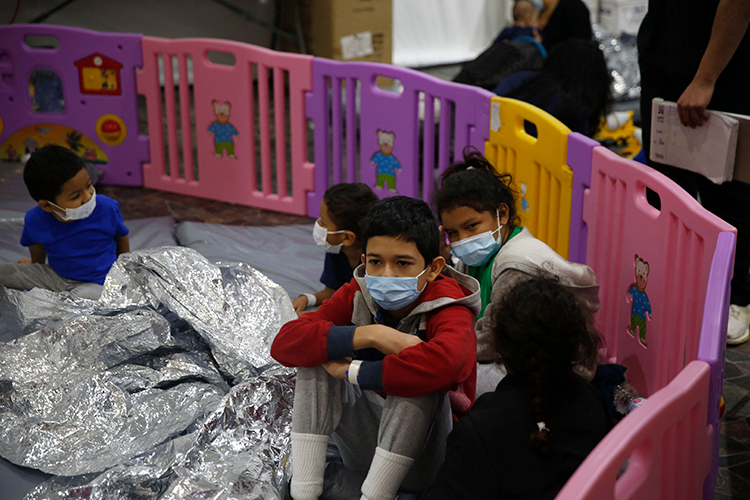TRO Mandates Continued US Funding for Immigration Representation of Unaccompanied Minors
April 2, 2025, 12:42 pm CDT
Unaccompanied children await processing at a Department of Homeland Security facility in Donna, Texas, in 2021. (Photo by Dario Lopez-Mills/Pool/AFP via Getty Images)
Overview of the Temporary Restraining Order
A federal district judge has recently issued a temporary restraining order (TRO) preventing the federal government from cutting off funding for legal representation in immigration courts for minors who arrive in the United States unaccompanied by a parent or legal guardian.
Details of the Court Ruling
On April 1, U.S. District Judge Araceli Martínez-Olguín of the Northern District of California ruled to block the termination of congressionally approved funding while deliberating on a request for a preliminary injunction.
The lawsuit was initiated by a coalition of eleven nonprofit legal service providers, which receive government funding through the Acacia Center for Justice. They took legal action after being informed on March 21 that federal funding for legal representation of unaccompanied minors would cease immediately.
Legal Context and Implications
The lawsuit highlights the federal government’s obligation under the William Wilberforce Trafficking Victims Protection Reauthorization Act of 2008, which mandates ensuring legal representation for unaccompanied children “to the greatest extent practicable.” In her ruling, Judge Martínez-Olguín acknowledged this legal requirement.
She stated, “Terminating funding for direct legal representation for unaccompanied children, without any plan to ensure continuity in representation, potentially violates Congress’ express directive” found in the Act.
Case Details
The case is officially titled Community Legal Services in East Palo Alto v. U.S. Department of Health and Human Services.
Related Developments
The American Bar Association (ABA) has expressed concerns regarding these recent federal funding cuts for legal services aimed at unaccompanied children. Ongoing advocacy for the continuation of this critical funding underscores the legal and ethical obligations involved in supporting vulnerable populations amidst challenging immigration policies.
For more information and updates, refer to coverage by major news outlets including The New York Times, Los Angeles Times, The Hill, ABC News, and NPR.

